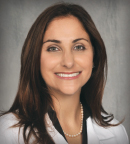
Amy MacKenzie, MD, FACP

Grant R. Williams, MD, MSPH
Caring for older adults with cancer is the purview of every oncologist. Over the next 30 years, the older adult population (65 years and older) will represent the fastest-growing segment of the world population. Globally, the number of persons 80 years and older is expected to triple from 143 million in 2019 to 426 million in 2050.1,2 Older adults make up the majority of people diagnosed with and living with a cancer diagnosis as well as survivors of cancer.3 Understanding the complexities of care in this group is crucial for improving the quality of care and research.
In 2018, ASCO created its first-ever formal guideline for the care of older adults with cancer. A key portion of these guidelines identified the geriatric assessment, a collection of tools to evaluate the health status of older adults, as a vital element in individualizing care for older patients with cancer. The guidelines recommend that geriatric assessment “be used to identify vulnerabilities that are not routinely captured in oncology assessments” and that “evidence supports [an] assessment of function, comorbidity, falls, depression, cognition, and nutrition.”4
Although the use of a geriatric assessment is recommended, understanding the knowledge and implementation practices of oncologists regarding such an assessment of older patients is extremely limited. The geriatric assessment is not routinely taught in oncology training (other than in dedicated geriatric oncology fellowships), and many providers may be unaware of its use in cancer care. To assess providers’ practice patterns regarding the geriatric assessment and perceptions of barriers and awareness of the ASCO guidelines, ASCO’s Addressing Cancer Health Disparities Among Older Adults Task Force conducted an international online survey of providers in oncology.
International Online Survey of Oncologists
A survey was developed and widely disseminated. It included respondent characteristics (eg, clinical practice setting, disease sites most frequently treated, years of experience), level of awareness of the guidelines, discrepancies in approach to treatment based on age, and use of a geriatric assessment. The survey assessed barriers to performing a geriatric assessment, including resource limitations, its perceived value, and its perceived validity as well as the use of systematic evaluations measures within individual geriatric assessment domains.
A total of 1,277 providers responded to the survey between April 5, 2019, and June 5, 2019. Most had a doctoral degree (MD and or PhD) and were located in the United States (70%). A total of 61% reported practicing in an academic medical center or university, with the primary specialty as medical oncology, followed by hematology and surgical oncology. The majority of respondents identified as specialists rather than generalists, with breast, lung, and colorectal cancers reported as the most frequently treated disease sites.
GUEST EDITOR

Stuart M. Lichtman, MD, FASCO
When participants were asked to report the frequency with which they assessed older adults differently from younger adults and how often they performed a multidimensional geriatric assessment using validated tools, 21% reported “always,” whereas 57% reported “rarely” or “never.” A little more than half (53%) of the respondents reported having an awareness of such guidelines, and this awareness was positively associated with increased frequency of performing a geriatric assessment using validated tools (55% vs 31%, P < .01).
A number of barriers were identified to performing a geriatric assessment in oncology practice. Lack of time, lack of support staff, and lack of training or knowledge were the most commonly cited barriers for implementing a geriatric assessment. Fewer providers reported feeling that evidence was insufficient or that reimbursement was a concern. Respondents familiar with the guidelines were more likely to cite lack of time, lack of support staff, and lack of training as barriers to geriatric assessment, whereas those unaware of the guidelines considered lack of knowledge, lack of awareness of validated tools, and uncertainty about which tools to use as the most significant barriers.
One of the key findings of this survey highlights the differences in practice patterns between those aware of guidelines and those unaware of guidelines. Those aware of the guidelines were two to four times more likely to conduct specific aspects of a formal geriatric assessment. This suggests that greater knowledge and awareness of resources to care for older adults may lead to the implementation of specific tools to improve their care.
Relevant Studies From ASCO20 Virtual Scientific Program
Research presented during the ASCO20 Virtual Scientific Program demonstrates how geriatric assessment may improve care for older adults. First, Dr. Supriya Mohile’s team at the University of Rochester evaluated whether or not patients older than age 70 receiving palliative chemotherapy would have fewer toxicities if assessed via a geriatric assessment.5 These patients had to have at least one vulnerability identified on geriatric assessment to be eligible. Sites were randomly assigned to receive either summary recommendations from a geriatric assessment or no input (usual care). More than 700 patients were enrolled in 41 practices throughout the United States.
Input from a geriatric assessment led to a significant difference in planned dose intensity and dose reduction after one cycle of palliative chemotherapy. There was a 15% increased rate of needing dose reduction after 3 months in the usual-care group and a 13.5% increased rate of a planned decrease in dose intensity after one cycle in the intervention group. In other words, usual-care patients required dose reduction more frequently after time, and patients who underwent geriatric assessment had an upfront reduction in dose based on input from that assessment.
As for toxicity, the overall relative risk of grade 3 to 5 toxicity was 0.74 (P = .0002) in patients who were treated at the intervention sites (ie, sites where oncologists were given recommendations based on a geriatric assessment). This corresponds to a reduction in grade 3 events from 71% in the control group to 50% in the intervention group—an absolute reduction of 20%. When toxicity can cause permanent functional decline, this difference becomes even more significant for the older population.5
A second trial, conducted by Dr. Daneng Li at the City of Hope, assessed whether or not active implementation of geriatric assessment–driven recommendations would improve outcomes compared with simply delivering geriatric assessment results to treating oncologists.6 A total of 600 patients were randomly assigned in a 2:1 ratio to intervention vs standard of care. In the intervention arm, a multidisciplinary team, consisting of a geriatric oncologist, nurse practitioner, social worker, physical/occupational therapist, nutritionist, and pharmacist, reviewed the geriatric assessment results and implemented interventions.
Compared with the standard of care, the active implementation of recommendations led to a decrease in the incidence of grade 3 to 5–related toxicity from 60.4% to 50.5% (P = .02)—a reduction of 9.9%. Completion of advance directives also increased in the intervention arm by almost 14% (P < .001).6
A third study (INTEGERATE), conducted in Australia by Dr. Wee-Kheng Soo and colleagues, prospectively randomly assigned patients older than age 70 planned for systemic cancer treatment to receive either geriatrician-led geriatric assessment and management or usual care alone.7 Patients in the intervention arm had significantly better functional scores (Elderly Functional Index) and significant improvements in quality of life and unplanned hospital admission rates, with lower rates of early treatment discontinuation.
These studies demonstrate the importance of a geriatric assessment for individualizing treatment for older adults and improving outcomes both in toxicity and health-related quality-of-life domains. In addition, they highlight the different approaches toward integrating a geriatric assessment into clinical practice. Using a geriatric assessment in varying capacities can increase the opportunity to tailor treatment plans in a heterogeneous population. This is crucial for the care of older adults with cancer and illustrates the need to improve knowledge of geriatric assessment and geriatric oncology guidelines. Given the promising results presented during the ASCO20 Virtual Scientific Program regarding the impact of geriatric assessment in improving outcomes, it is even more critical to address and overcome the barriers identified in the use of geriatric assessment to individualize the treatment of older adults with cancer.
Dr. MacKenzie is Assistant Professor in the Division of Regional Cancer Care in the Department of Medical Oncology at the Sidney Kimmel Cancer Center, Thomas Jefferson University, Philadelphia. Dr. Williams is Assistant Professor in the Division of Hematology & Oncology; Director of the Cancer & Aging Program; Member of the Institute for Cancer Outcomes and Survivorship; and Associate Scientist, O'Neal Comprehensive Cancer Center, The University of Alabama at Birmingham.
DISCLOSURE: Dr. MacKenzie has received honoraria from Merck and has an immediate family member who holds stock or other ownership interests in Tenet Healthcare. Dr. Williams reported no conflicts of interest.
REFERENCES
1. United Nations: Peace, dignity and equality on a healthy planet. home: Global issues: Ageing. Available at https://www.un.org/en/sections/issues-depth/ageing/index.html. Accessed November 18, 2020.
2. World Health Organization: Ageing and health, February 5, 2018. Available at https://www.who.int/news-room/fact-sheets/detail/ageing-and-health. Accessed November 18, 2020.
3. Centers for Disease Control and Prevention: U.S. cancer statistics. Available at https://www.cdc.gov/cancer/uscs/index.htm. Accessed November 18, 2020.
4. Mohile SG, Dale W, Somerfield MR, et al: Practical assessment and management of vulnerabilities in older patients receiving chemotherapy: ASCO guideline for geriatric oncology. J Clin Oncol 36:2326-2347, 2018.
5. Mohile SG, Mohamed MR, Culakova E, et al: A geriatric assessment (GA) intervention to reduce treatment toxicity in older patients with advanced cancer: A University of Rochester Cancer Center NCI community oncology research program cluster randomized clinical trial. ASCO20 Virtual Scientific Program. Abstract 12009.
6. Li D, Sun CL, Kim H, et al: Geriatric assessment-driven intervention (GAIN) on chemotherapy toxicity in older adults with cancer: A randomized controlled trial. ASCO20 Virtual Scientific Program. Abstract 12010.
7. Soo WK, King M, Pope A, et al: Integrated geriatric assessment and treatment (INTEGERATE) in older people with cancer planned for systemic anticancer therapy. ASCO20 Virtual Scientific Program. Abstract 12011.

